November

Daylight Savings. 11.7.23.
The sun sets earlier now.
I saw a break in the clouds
after a short torrent of rain today,
mid-60’s the whole afternoon.
5 pm, the red vulva sky poked through the navy gray atmosphere.
I thought to myself, “destruction is beautiful.”
Not because I subscribe to the pomo optimism about the world to come,
rising through the ashes,
and not because I find beauty in sadness.
I do not hold any moral value in my interpretation of the world.
The sky is pretty and I find it that way – what is moral or immoral about this?
The foggy remainder of a bomb
is beautiful to me when I see the images of Gaza on my phone.
It is horrifying, distant, outrageous, incomprehensible, all this
but I find it beautiful.
On my commute home in the dark,
I can no longer see the drivers inside each car.
We are just bodies of metal and glass.
I can’t even distinguish the cars themselves – the make and model,
whether they are to be feared because they are cops
or because they are just like me, much more likely to
cut someone off or hit a pedestrian or hit another car
now that black envelopes us an hour before work gets out.
The dark shuts us off from each other, true,
but it also makes us careless,
and we should fear each other on both accounts.
*
11.8.23.
What I like about the vulva-in-the-sky image
is its pure libidinal quality.
Imagine you are walking from Union to Harvard for a night out,
the sun is setting,
and a great gulf between cloud and the sun of G-d
separates before your eyes;
what does this sight mean? Is it opening or closing?
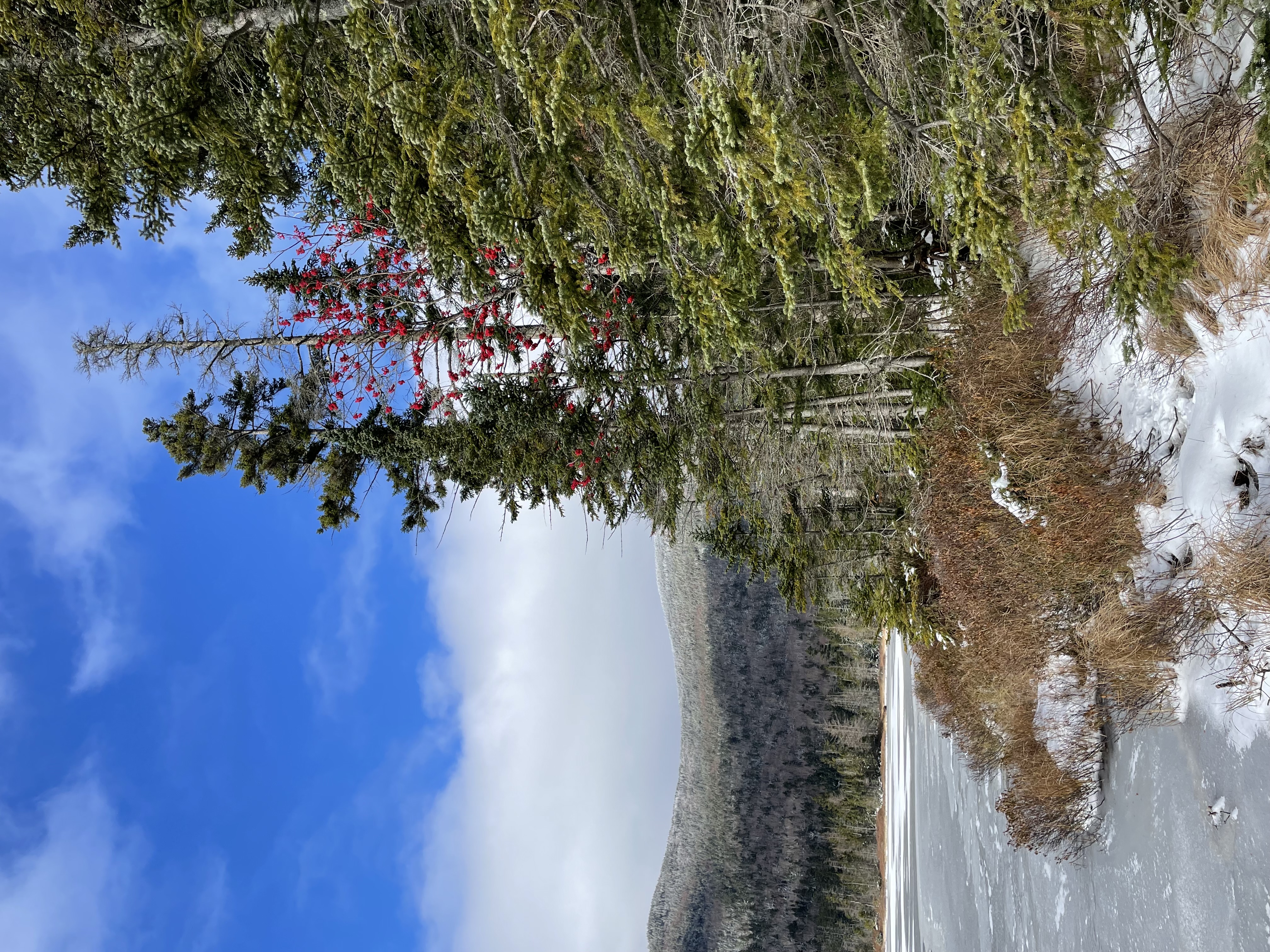
11.12.23.
I can’t know you and
because of that I love you.
The motel exhales.
*
A student protest turned violent.
Alumni and sympathetic advocacy groups were invited to attend,
and so I joined with a couple of friends.
There are many videos showing the kids behaving peacefully
as they slowly left the premises,
hurling words at police but from a distance.
An officer arrested a girl and some shoving ensued.
Another tackled a student and knelt on him
with the help of a colleague.
His face was bruised. A second student would tell a reporter
that his knee had been dislocated.
They did not leave fast enough, I suppose.
Or maybe they should have picked something else to protest.
The charges are assault against an officer
and refusal to comply with a police request to leave,
both relatively serious.
While they waited in the police van amid shouts and commotion,
someone tried to take the names of the arrested students
to help get them out of jail that night.
This fellow in the yellow jacket simply typed names into a phone,
not saying a word to the police
and certainly not laying a hand on anyone.
After the police had finished their work on the ‘Great Lawn,’
they began walking towards us,
myself, my two friends, the yellow jacket.
As we made our way off campus
and towards the commuter rail parking lot,where we would in all likelihood be home-free,
another group of police appeared in front of us.
One said to another, “yellow jacket.”
The two groups converged on us.
Our friend attempted to part to our right,
realized the outcome was inevitable, and, with raised hands, gave up.
Seven were arrested in total, three of them students.
Had the arrests not taken place,
I would have left the campus with the same impression
I harbored all throughout college and since,
that American protests are fundamentally unserious,
even if they take their own intellectual heft seriously.
(I am speaking of academic or middle and upper class protests, here.)
(Union efforts and certain poor people’s campaigns are another story.)
It seems to me that the protestors themselves also take themselves unseriously,
as was clear with the lack of preparation among the coordinators
when the arrests began in earnest.
Who was prepared to be arrested? Who was supposed to do what?
And had the arrests not taken place,
I would have driven home with complaints and frustrations about
the speakers’ rhetoric, the chants,
the organizers’ unwavering attachment to edginess
at the expense of a broader coalition
– in short, why I believed the protest was unserious.
And this form of frustration is itself evidence
that I was politically unserious as well
– it may have been inevitable to witness
a class incommunicability between students and police,
the former speaking about genocide, imperialism and fascist cop pigs
while the students lay parasite to the college town’s resources.
But witnessing genuine consequences to these protests
– be it from unfree speech, policing, or Zionist administrators –
connected me with the rest of the crowd in terms I can’t describe.
There was something deeply radicalizing about this,
plunging a knife deep into the liberal assumptions
about political violence I didn’t know I still harbored.
It dissolved identifiers (Palestinian, Jewish, trans, youth)
which were nominally the reason that people “showed up” that day.
(“We know these cops will attack us the same way")
("they are attacking Palestinians, so we need to support Gaza now”)
We were simply members of the crowd or against it. (Bush II)
The multiplicitous identifiers converged into crowd and anti-crowd,
and in those conflated terms we were able to connect,
one atomized protester with another.
Organization bridges us.
This is what I am referring to when I say we are politically unserious,
when we have no concept of genuine organization.
A crowd of individuals cannot really understand
what collective consequences (good or bad) look like.
We remain as individuals through an abstract other;
we become a group through the presence of a specific other.
And, more importantly,
I did not fancy myself (or long to be) a Hitler at that moment,
but a Himmler (forgive the metaphor).
So often we think,
"If only I held the ideological or intellectual reigns of this movement,
I could do what must be done, move the people how they must."
I have never been less attached to political specificity.
Method, form, organization is all that matters.

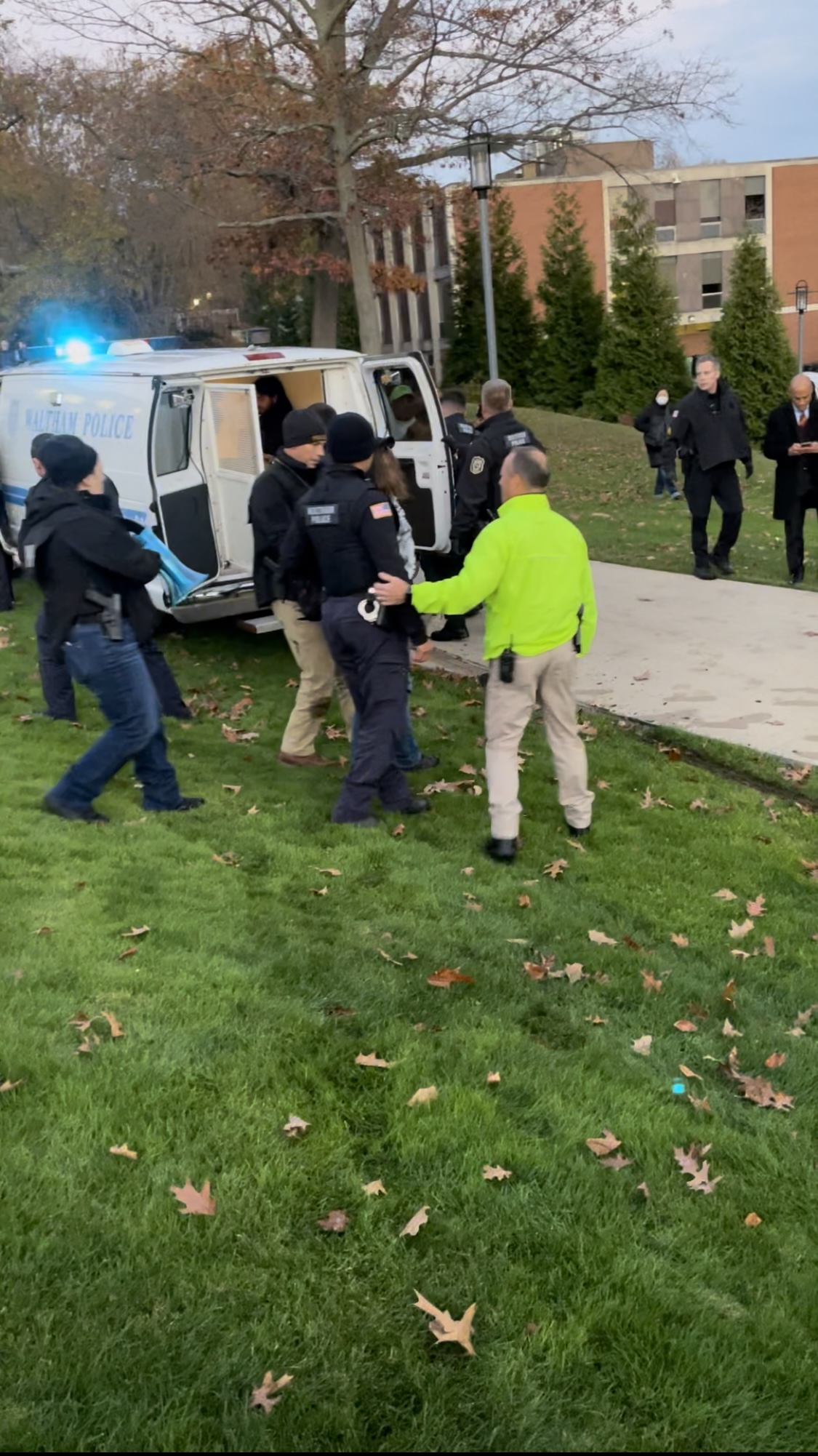
11.13.23.
A short poem, as follows:
everything only everything

11.15.23.
A boy obsessed with himself – no, with displaying himself,
which is not the same thing.
It requires others to positively consume his display
in order to prove that he is worthy of being obsessed over.
He is incapable of obsessing over himself,
since he must instead be fixated
on whether or not others are obsessing over him;
on whether or not he can be obsessed over.
He is caught up in the act,
he can only think of himself as the predicate,
the background noise against which his audience
(his followers, his family, both strangers)
can measure their own life.
It is his audience who obsesses directly and the boy who obsesses indirectly.
Audience, you are blessed!
It is you who can experience the world directly.
Cease producing – consume, and you will do more to change the world.
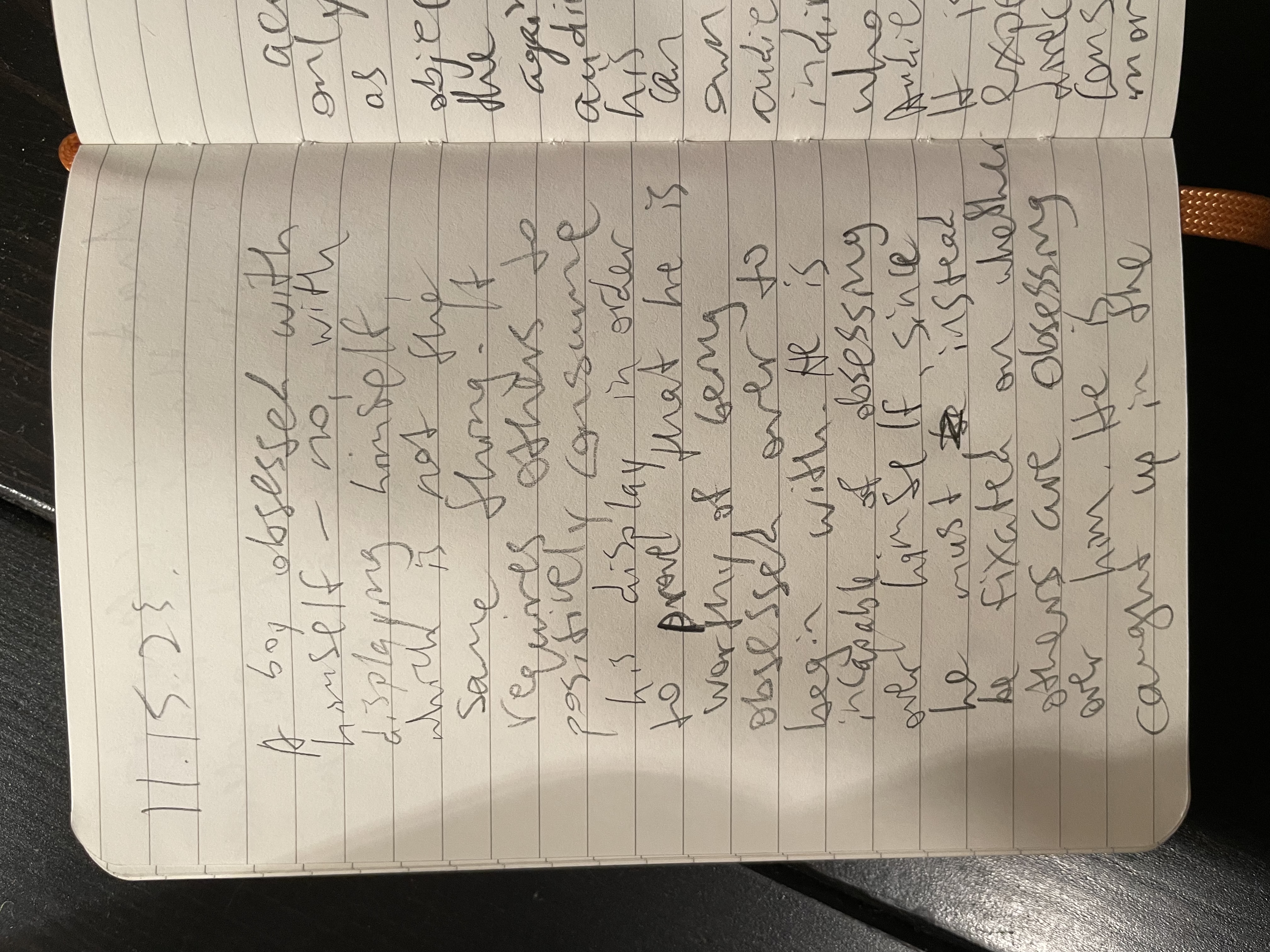
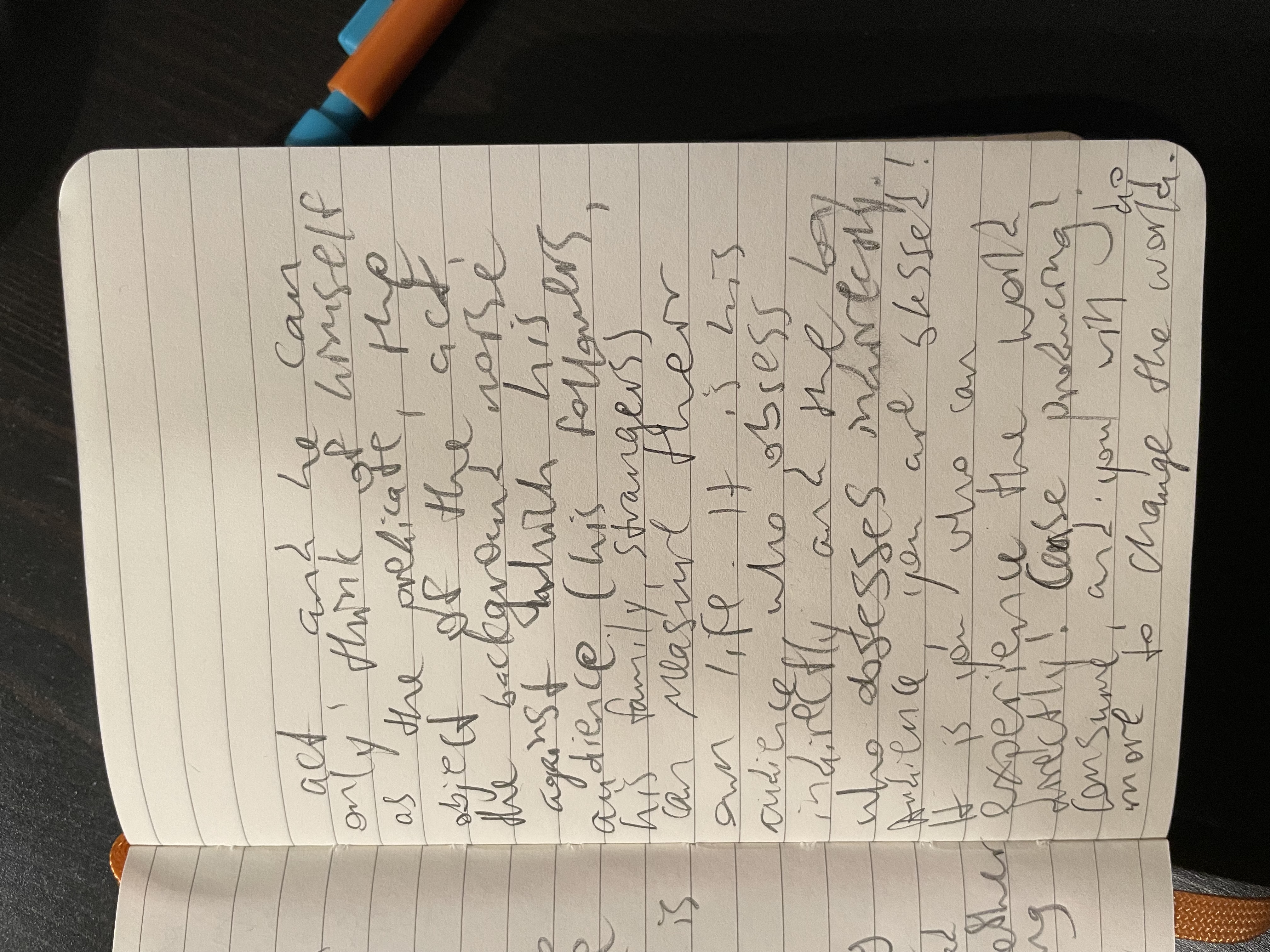
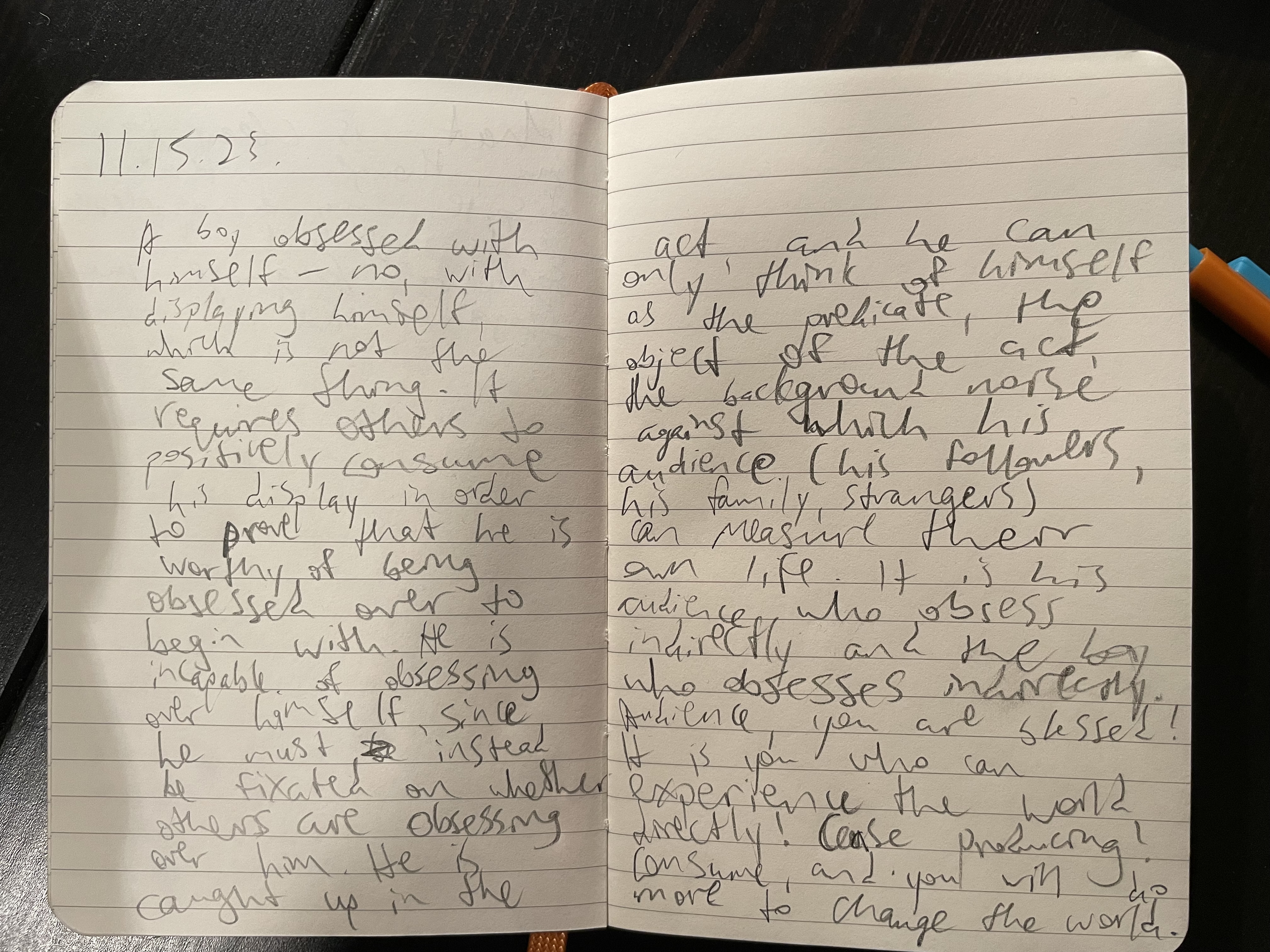
11.16.23.
Dreams fraught, frayed jeans,
we are the zealots of the written word, in lead.
Something new is born, not in the words that remain
but in the scrawling.
Forgive the pomo prose and point.
